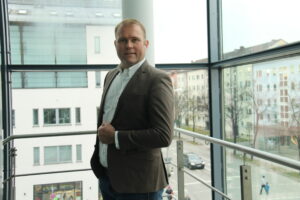Medium-sized enterprises (MSEs) are crucial to the global economy, driving innovation, creating jobs, and fostering economic growth. While often overshadowed by large corporations and startups, MSEs have unique strengths and face distinct challenges. This article delves into the stories of three successful medium-sized enterprises, highlighting their strategies, challenges, and lessons learned.
Case Study 1: Patagonia
Overview:
Patagonia, an outdoor clothing company based in Ventura, California, epitomizes the successful blending of profitability with environmental responsibility. Founded in 1973, it has grown into a globally recognized brand with a strong commitment to sustainability.
Strategies:
- Environmental Stewardship: Patagonia’s “1% for the Planet” initiative, where the company donates 1% of sales to environmental causes, has bolstered its reputation and customer loyalty.
- Quality and Innovation: By investing in high-quality materials and innovative designs, Patagonia ensures its products are durable and sustainable, reducing waste and appealing to eco-conscious consumers.
- Corporate Culture: Patagonia fosters a corporate culture that values work-life balance and environmental activism, attracting passionate and dedicated employees.
Challenges:
- Supply Chain Management: Ensuring ethical and sustainable practices throughout its supply chain has been a significant challenge.
- Market Competition: Competing with larger brands while maintaining its commitment to sustainability requires constant innovation and marketing efforts.
Lessons Learned:
- Brand Loyalty Through Values: Building a brand around core values can create strong customer loyalty.
- Sustainability as a Strategy: Environmental responsibility can be a powerful differentiator in the marketplace.
Case Study 2: Basecamp
Overview:
Basecamp, a project management and team collaboration software company, has redefined workplace productivity. Founded in 1999, it has remained a lean, efficient operation with a focus on simplicity and user-friendly design.
Strategies:
- Simplicity and Focus: Basecamp emphasizes simplicity in its product design, making it accessible and easy to use for businesses of all sizes.
- Remote Work Advocacy: The company has been a pioneer in advocating for remote work, long before it became mainstream, which has allowed it to attract talent from around the globe.
- Customer-Centric Development: Basecamp actively listens to customer feedback to continually improve and adapt its software.
Challenges:
- Competition: The software industry is highly competitive, with numerous well-funded competitors.
- Scaling While Maintaining Culture: Growing while preserving its unique corporate culture and values has been an ongoing challenge.
Lessons Learned:
- User-Centric Design: Prioritizing the user experience can lead to a loyal customer base.
- Remote Work: Embracing remote work can be a significant advantage in attracting and retaining talent.
Case Study 3: BrewDog
Overview:
BrewDog, a craft brewery founded in 2007 in Scotland, has rapidly expanded into a global brand known for its bold marketing and innovative beers.
Strategies:
- Innovative Marketing: BrewDog’s marketing campaigns are known for their creativity and boldness, capturing significant media attention and consumer interest.
- Equity for Punks: Their innovative crowdfunding initiative has allowed them to raise capital while building a dedicated community of brand advocates.
- Sustainability Initiatives: BrewDog has committed to becoming carbon negative, further enhancing its brand appeal among environmentally conscious consumers.
Challenges:
- Regulatory Hurdles: Navigating different regulatory environments as they expand globally has been challenging.
- Maintaining Quality: Rapid expansion while maintaining the quality and uniqueness of their products.
Lessons Learned:
- Community Building: Engaging customers through innovative ownership models can create a dedicated brand following.
- Environmental Commitment: Sustainability initiatives can differentiate a brand and attract a loyal customer base.
Conclusion
These case studies of Patagonia, Basecamp, and BrewDog illustrate the diverse strategies medium-sized enterprises can employ to achieve success. Common themes include a strong focus on core values, innovation, customer-centric approaches, and environmental responsibility. By learning from these examples, other MSEs can navigate their unique challenges and carve out their paths to success.




